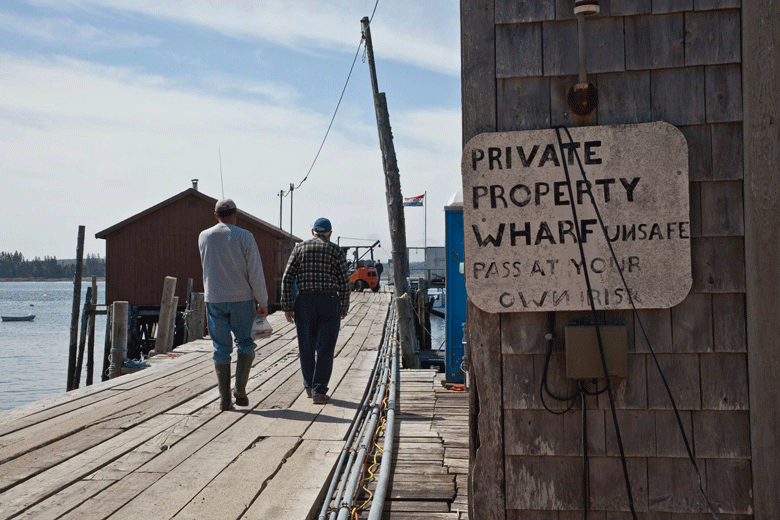The pristine and productive marine environment in Chandler and Englishman Bays where Jonesport, Roque Bluffs, and Roque Island are situated is now threatened by the plans of Kingfish Maine to build an industrial-sized, land-based fish farm in Jonesport.
I am part of Roque Island Gardner Homestead Corporation, a family community, which owns Roque Island. Preservation and responsible stewardship have been the focus of its management since 1806. We have worked hard to preserve the traditions of Maine saltwater farms, and to conserve the land and water around us.
We have striven to be an educational resource by providing access to scientists and students to do research on all aspects of the environment. We have also provided apprenticeships to young farmers interested in all around farming.
The plant will draw in 28 million gallons of sea water every day.
Understandably, our group is concerned about developments in the neighborhood. We have joined forces with a local group, Protect Downeast, which was formed by fishermen and residents similarly concerned about the economic, environmental, and cultural impacts that this plant will have on the community.
Kingfish Maine describes the plant as a recirculating aqua system, or RAS, which is a misnomer unless one counts the sea as part of the plant. On the intake, the water will be filtered and heated, circulated through the plant, and then released into the bay. The plant will draw in 28 million gallons of sea water every day.
That water will have been altered during its journey through the plant.
First, the initial filtration and heating will kill most of the microscopic phytoplankton, zooplankton, fish eggs, lobster, and shellfish spat. Secondly, what will be added is 6.5 million gallons of “fish culture or process” water, 1,580 pounds of nitrogen, and other unsavory things such as formaldehyde.
The state Department of Environmental Protection has made an exception to allow Kingfish Maine to release an excessive amount of nitrogen into the bay, above the proscribed limit. To put this in perspective, it is more than twice the amount of nitrogen the entire city of Portland releases into the roughly 1,000 square mile Casco Bay. By comparison, Chandler Bay is 14 square miles.
The effluent from the plant will spread throughout the rivers, inlets, and bays in the vicinity and beyond. Increased nitrogen causes eutrophication, which causes algal blooms, reduces water quality, and degrades commercial fisheries. Ocean acidification impacts the bottom line for fisheries and Kingfish Maine is also proposing to significantly increase the acidification of the water.
This project is a threat to the entire Maine coast. Should it be allowed to proceed as proposed, it will open the gates for many more like it. Furthermore, nothing is assured about the employment being promised. According to the current plan, Kingfish Maine will inevitably cause environmental problems in this very rich and productive fisheries area.
It would be far better to encourage multiple smaller aquaculture projects which would not have a negative impact; in fact, would have a positive impact (think kelp, oysters, mussels), and would provide employment more in keeping with the coastal culture in this part of the state.
I urge readers to think of the Maine coast and its traditions, and not let Maine sell its abundant natural marine resources, yet again. Consider the fate of codf, herring, and sea urchins. Now is it going to be the sea itself?
Anita Herrick is a seasonal resident on Roque Island near Jonesport.





